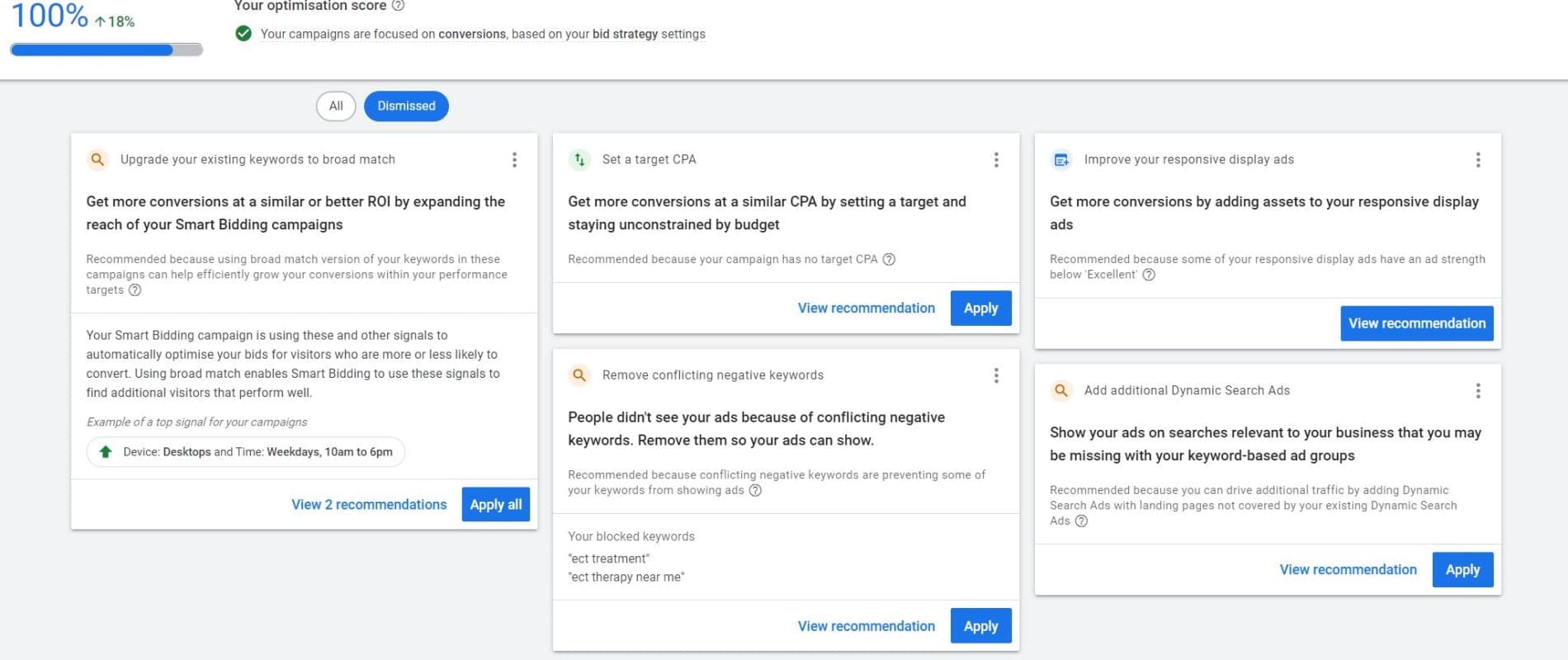
How to Handle Google AdWords Recommendations
If it feels as though you can’t do anything in the Google Ads interface without being served an array of recommendations, you’re not alone.
Most recommendations imply that they can enhance the performance of your campaign at the click of a button which, if true, would vastly simplify the Google Adwords management process for many.
Google itself states:
“Recommendations can introduce you to new, features [and] help you to get more out of your budget.”
But how beneficial are they exactly?
Let’s start by breaking down the different types of recommendations you might see.
1. Budget Recommendations
Google often recommends increasing the budgets of campaigns with rigid spending caps. Accepting this recommendation can significantly increase your costs, which is ultimately more likely to cause harm than good.
2. New Keywords
On the surface, receiving direct keyword recommendations from Google itself might seem like a quick win. However, its recommended keywords aren’t usually specific or even relevant enough to pay any attention to.
3. Audience Segments
This type of recommendation uses data gathered from those who are currently visiting your site and engaging with your adverts, which can be useful. Again, however, reviewing the recommendation is important because you want to avoid targeting audiences that just aren’t relevant enough.
The Components of Effective Google AdWords Management
The recommendations served by Google in its AdWords interface are based on its own interpretation of ad management best practices. However, this singular perspective won’t always relate to your AdWords strategy and could actually end up impeding the potential of your campaign.
For example:
Let’s say that you want to drive qualified leads to your site, which you can channel into your sales funnel. Google may recommend a tactic that is designed to boost conversion volume, however it is likely to drive lower quality leads that simply aren’t as valuable to your business.
But often, unless you’re an AdWords specialist, it isn’t always easy to determine the quality of these recommendations. So, what should you do?
It is good practice to thoroughly test all adjustments before deciding to change your strategy. There are numerous ways to approach this style of experimental campaign testing, including driving half your traffic to your original campaign and channelling the other half to an altered version of your campaign.
In Conclusion
Yes, occasionally Google’s recommendations may provide you with some valuable hints and tips to improve your campaign performance.
However.
Clicking ‘apply’ on every recommendation really isn’t a wise decision.
And I say that because I’ve seen the outcomes with my own eyes. For example, I am working with several clients who have done this in the past with the best intentions, only to end up inadvertently lowering their ROAS and adding irrelevant phrases that further negatively impacted performance.
So, although this feature may seem to suggest that working with an experienced AdWords specialist isn’t necessary, effective Google AdWords management is much more nuanced and complex than it may initially seem.